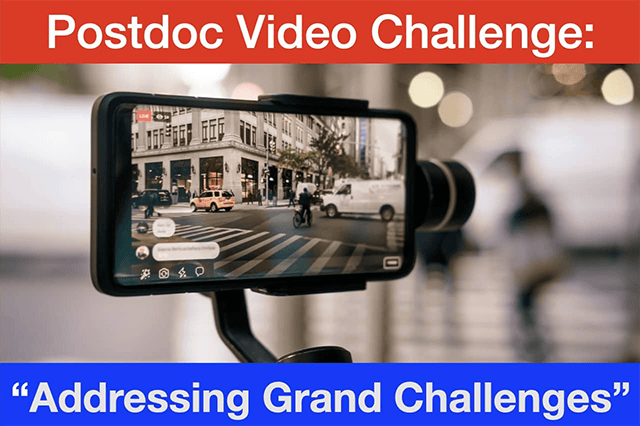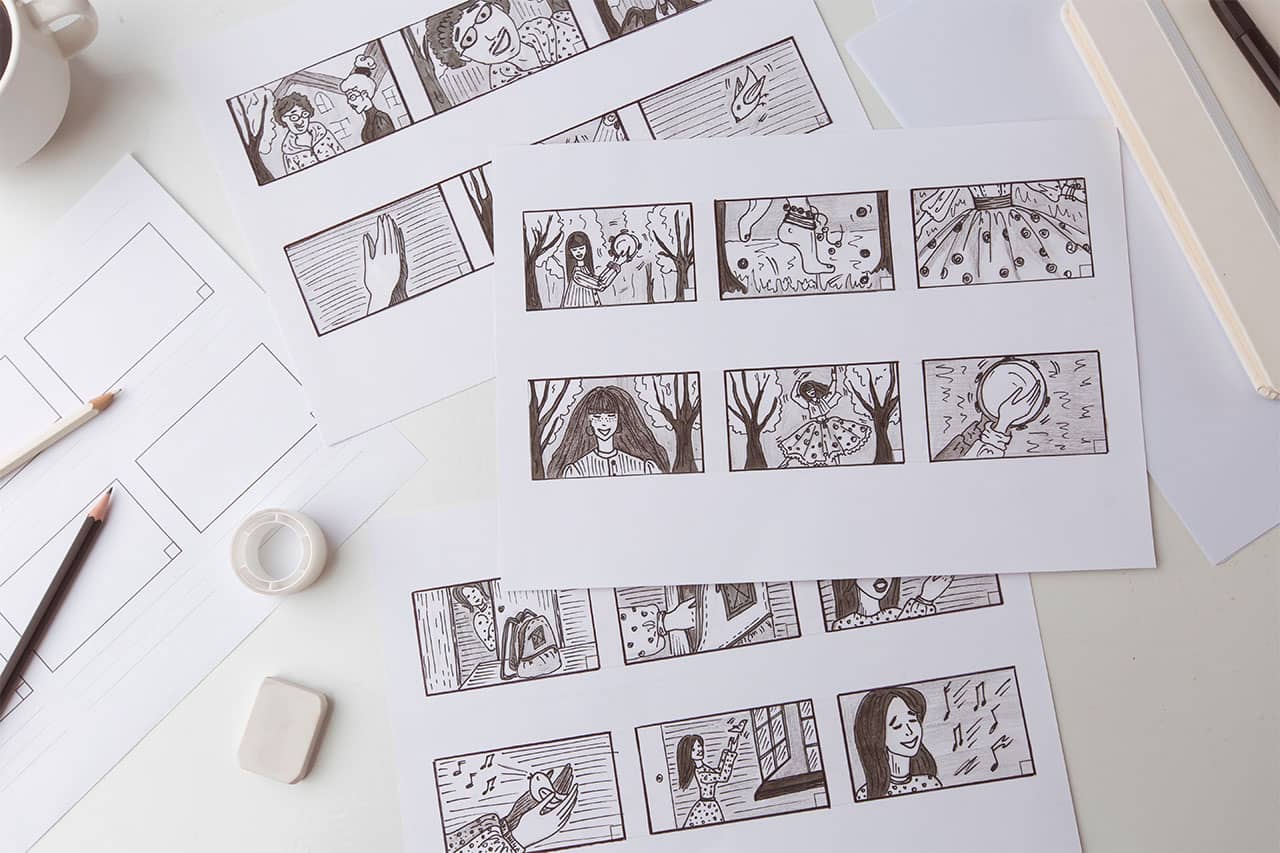
www.buildingsandcities.org/video-challenge/2023.html
2023 Postdoc Video Challenge: "Addressing Grand Challenges"
The Closing date of 17.10.2023 has now passed.
Purpose
This 'video challenge' celebrates a diversity of built environment research from postdocs in many countries and built environment disciplines. Collectively, these videos will illustrate the importance and interest of emerging built environment research to civil society and industry.
The theme of this video challenge is "GRAND CHALLENGES" - the difficult but key problems that societies face. This is an opportunity for postdocs to explain the significance of their research in relation to major societal issues, articulate a 'big picture' view of its potential contribution and impacts. These videos should explain clearly, succinctly and creatively why the chosen research project matters and how it fits into the wider context and might contribute to society. It must be aimed at the general public.
By engaging in this video challenge, participants will improve their communication skills and enhance the visibility of their work.
Videos will be showcased to the public. This will increase public awareness and appreciation of the contribution of built environment research.

Rules

Eligibility
Any person with PhD up to six years (as of 17 October 2023) after their PhD degree was awarded.
The topic can be based either on your PhD or postdoc research.
'Built environment' in the broadest sense means the creation, use, operation, maintenance and stewardship of the built environment (buildings, neighbourhoods, cities, peri-urban & rural areas, infrastructure) including social, environmental, economic, political and physical aspects. Participants may come from a variety of departments or disciplines: sociology, geography, architecture, planning, construction, engineering, facilities management, real estate, urban studies, environmental design, finance, project management, etc.
Entry
- Only one video per applicant.
- A statement about the content of your video (100 words) and a declaration of what grand challenge you are addressing.
- Evidence is required the date when a PhD was awarded.
- A short 100-word biography about you (educational background, current interests, the research topic of your PhD, postdoc and/or current research).
- A headshot.
- Your contact details.
Deadline
Completed applications and videos must be submitted before Tuesday 17 October 2023 noon (UCT / GMT / UK time). Late submissions will be disqualified.
Scope
It is up to you to choose and declare a grand challenge or challenges that current societies face and that related to your research. Your video should state what grand challenge(s) you aim to address with your work and explain the significance of your research to a wide, general audience and address how this research addresses the chosen grand challenge(s).
Your video should pertain to your research about the built environment and its impacts in the broadest sense: the social, economic, environmental and physical resources, creation, use, operation, maintenance & stewardship of the built environment (buildings, neighbourhoods, cities, peri-urban & rural areas, infrastructure) including social, environmental, economic, health, political, physical & spatial aspects / impacts.
The topic may be transdisciplinary in nature or be based in a specific discipline: sociology, geography, construction, ecology, economics, political science, psychology, physiology, engineering, facilities management, architecture, planning, real estate, urban studies, environmental design, finance, project management, business, etc.
Format
We encourage creativity and the use of different formats that help to clearly convey your message: live action, animation, still images, visual effects.
Length
The video must be 120 seconds or less (in total). Videos longer than this will be disqualified.
Language
The video can be in any language, but those not in English must have subtitles in English language.
Sound
Narration and musical background are allowed. It is important that good sound quality is provided (see Guidance for more information).
Subtitles
Subtitles are highly recommended for all video entries (regardless of language).
Copyright and permissions
Your video must contain original work. Any externally-sourced images, video clips or music used in your video must be licensed to you or have Creative Commons permission. If people appear in your video, they have given written consent to appear in the video and have been told it will be entered into this competition. Details of the consent and license to use your video are provided on the registration page.
Technical Requirements
Videos should be in either .mp4 or .mov format; no larger than 500mb; 120 seconds or less in duration; resolution should be 1920 x 1080. Video file should be named as the Reference Code you will receive by email upon submission of your entry.
Awards
- Outstanding prizes: €600
- Excellent prizes: €400
- People's vote prize: €400
Guidance
- The content and presentation are qualitatively and quantitatively different from an academic presentation. Remember that the emphasis is on the significance of your research, not the methods.
- We recommend that you first develop a clear overarching message and narrative - a clear story. Then turn this into a storyboard with approximate timings. This process may require several iterations and should be critically evaluated.
- When you have a final storyboard, it is time to start filming. Most smartphones will be sufficient for this purpose.
- The emphasis is on the quality of narrative (which includes the use of visual material) to convey your story.
- We suggest keeping 'talking heads' and powerpoint slides to a minimum (or avoid altogether).
- If using sound, you should record this separately or use a separate microphone. Microphones in smartphones work best when directly adjacent to the speaker.
- We recommend using software to add subtitles. There are free / low-cost software for this.
- Your university or organisation may be a useful resource for technical support and useful software
- Have a look at the winners from the 2022 Video Challenge.
- A live Q&A session will be in September (exact date to be announced on this website). FAQs will be also be updated after the Q&A session.


Judging criteria
- Meets the stated rules?
- Content and scope are appropriate to the competition?
- Accessible to a general audience?
- The video clearly states a societal grand challenge?
- Clarity of the significance of the research?
- Explained clearly and concisely?
- Factually accurate?
- Clear narrative thread?
- Sound and visual quality clear and appropriate?
- Held the viewer's attention?
- Overall message is apparent?
The judges' decision is final.
FAQs
Coordinating Committee
- Richard Lorch, Buildings & Cities
- Andreas Klee, Academy for Territorial Development in the Leibniz-Association
- Kareem Buyana, Makerere University Uganda
- Rick Diamond, Lawrence Berkeley National Laboratory
- Virginia Gori, University College London
- Sila Ceren Varis Husar, Slovak University of Technology
- Carolin Pleines, Academy for Territorial Development in the Leibniz-Association
- Freja Nygaard Rasmussen, Norwegian University of Science and Technology
- Rajan Rawal, CEPT University
- Chiara Tagliaro, Politecnico di Milano
Resources
How to licence music and free music resources
Alan Alda Center for Communicating Science
Aines, R.D. & Aines, A.L. (2019). Championing Science: Communicating Your Ideas to Decision Makers. Oakland: University of California Press.
Alda, A. (2017). If I Understood You, Would I Have This Look on My Face?: My Adventures in the Art and Science of Relating and Communicating. New York: Random House.
Anderson, C. (2016). TED Talks: The Official TED Guide to Public Speaking. Boston: Houghton Mifflin Harcourt.
Dean, C. (2009). Am I Making Myself Clear? A Scientist's Guide to Talking to the Public. Cambridge, MA: Harvard University Press.
Luna, R.E. (2013). The Art of Scientific Storytelling: Transform Your Research with a Step-by-Step Formula. Amado International.


